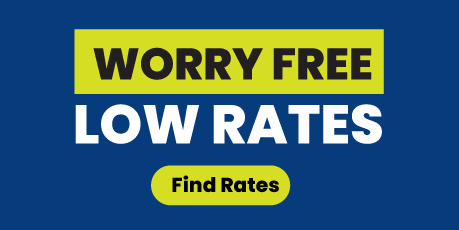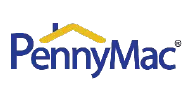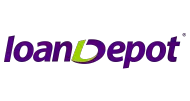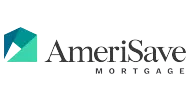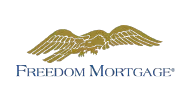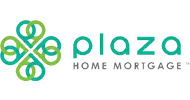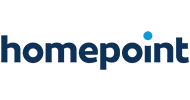What is a Conventional Purchase Loan?


What is a Conventional Purchase Mortgage Loan?
A Conventional Purchase Mortgage loan is available to qualifying borrowers that have a minimum credit score of 620 and a down payment of no less than 3-5%. Unlike FHA, VA, and USDA, conventional mortgage loans are not insured by the Federal Government.
A conventional mortgage loan is deemed "conforming" as it meets the underwriting guidelines determined by Fannie Mae or Freddie Mac, two government-sponsored enterprises, which purchase loans from lenders before selling them to investors.
This process of reselling frees up more funds for lenders who can then assist additional buyers in acquiring homes.
Conventional mortgages for purchasing homes are available through most banks, credit unions and mortgage lenders. The interest rates on these loan programs are provided in both fixed rate or adjustable.
Whether you're purchasing your first residence or adding another investment property to your portfolio, this type of loan provides many solutions that can help make owning real estate more attainable.
Although there are numerous sets of underwriting guidelines for conventional mortgage loans, loan approval is easily determined when the lender submits your electronic loan profile to the Desk-Top Underwriter that will determine final eligibility.
Conventional loans have more stringent credit demands than government-backed financing such as FHA home loans, but provided a lower cost purchase loan option.
What are the requirements for a Conventional Purchase Loan?
Conventional Purchase down payment requirements:
- Conventional Purchase mortgages require a down payment of 3-5%.
- It is possible for a first-time home buyer to get a conventional mortgage with a down payment as low as 3%.
- If this is the borrowers first home and their income is less than 80% of the median income in the area in which they live, the down payment requirement is 3%.
- A property that has more than one unit, the down payment is 15%.
- A second home requires at least 10% for the down payment.
- The down payment for an adjustable rate mortgage(ARM) is 5%.
Conventional Loans credit score requirements:
Borrowers shall have a minimum middle credit score of 620 as reported from Experian, Transunion and EquiFax. In general, conventional mortgage loans offer borrowers with a middle score of 660 or better great lending terms.
When a borrowers credit score is less than 660, in most cases the Federal Housing Administration Loan Programs (FHA) will perform better as it relates to the interest rate and closing cost.
Debt-To-Income-Ratio:
Backend Debt-to-income (B.DTI) ratio is the percentage of the borrower’s gross monthly income that is used to pay debts such as mortgage payments, credit cards, car loans, and student loans. A Back-end DTI ratio of 43% or lower is generally required for conventional mortgages.
However, when this ratio exceeds 43% borrowers may still qualify based upon the size of down the down payment, considerable reserve assets, or existing equity in the property to refinance.
Frontend Debt-to-income (F.DTI) ratio is the percentage of the borrower’s gross monthly income that is used to pay the primary residence housing expense. A Frontend DTI ratio of 36% or lower is generally required for conventional mortgages.
However, when this ratio exceeds 36% borrowers may still qualify based upon the size of down the down payment, considerable reserve assets, or existing equity in the property to refinance.
If a home-buyer is requesting a mortgage pre-approval, and the home-buyer lacks the income to qualify and obtain a mortgage pre-approval then the home-buyer can lower their debt-to-income by paying down monthly debt obligations.
Conventional Private Monthly Mortgage Insurance:
Private mortgage insurance (PMI): Borrower paid Private Mortgage Insurance is a policy that protects the lender for any losses on a mortgage loan when that loan exceeds 80% the value of the property.
Borrowers with less than a 20% down-payment on a conventional mortgage will be required to pay for private mortgage insurance (PMI).
The cost of PMI will vary based on your credit score, size of your down-payment or existing equity if refinancing, type of property like condo, manufactured, townhome or single family residence, and the loan type like cash out refinance, rate and term refinance, home improvement, or purchase loan.
The monthly PMI fee is included in the total monthly payment of the loan.
PMI may be removed once a borrower reaches 20% equity in the home. You can contact your lender to have a new appraisal performed to access the equity in your home, and or inquire about removing the private monthly mortgage insurance. This insurance protects the lender in case the borrower defaults on the loan.
What are the Advantages of Conventional Purchasing Mortgage?
Lower Interest Rates: Conventional Purchase Mortgages may have lower interest rates than others. Not all mortgage lenders provide the same interest rates for Conventional mortgage purchase loans. If a borrower want to know how to get the lowest interest rate, than they should compare multiple lenders interest rates and loan offers.
Private Mortgage Insurance: Borrowers who put down 20% or more on a conventional mortgage do not have to pay for private mortgage insurance.
In addition, borrowers who are required to have private mortgage insurance, may qualify to have the mortgage insurance removed by paying down the loan balance below 78% loan-to- value.
Lower Fees: Conventional mortgages offer more flexibility compared to other types of loans. Borrowers can choose from fixed or adjustable interest rates. They have more options for loan terms and repayment schedules.
In general, Conventional Mortgage Loans offer a cost-effective approach to the financing of residential real estate for borrowers that have average to high credit scores.
What Are the Disadvantages of Conventional Mortgage Purchase Loans?
Strict eligibility requirements: Conventional mortgages have strict eligibility requirements. including a good credit score and a low debt-to-income ratio. This can make it difficult for some borrowers to qualify for a conventional mortgage.
Larger down payment: Conventional mortgages require a larger down payment compared to other types of loans. This can make it difficult for some borrowers to come up with the required cash up front.
Conventional Purchase Loan Summary:
In conclusion, a conventional purchase mortgage maybe the right decision for a borrower. There are other programs to choose from, such as USDA, VA, or FHA programs.
Each program has different requirements, advantages and disadvantages. A borrower should research the different types and decide which mortgage program best fits their needs and circumstances.
To evaluate all loan programs and compare all loan options in under 3 minutes, EquiFund Mortgage offers a simple mortgage app that will instantly return real interest rate loan offers, using all loan programs from multiple national lenders to capture the lowest rate and fee loan matched to your profile.
Please read through this information and if you have questions we are here to assist.
Our expert mortgage officers are available to assist with any questions you may have.
Please call us at 1-866-713-9292 or apply online

